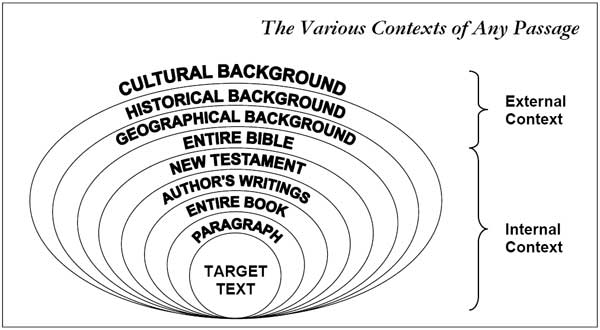Christians are to be Bible people. We believe that God inspired the Bible (2 Timothy 3:16), and it is given to us as a gift that we may enjoy a relationship with the living God through knowing him (John 17:3). We are to read the Bible in order to know God and his revealed will. But let’s be honest, sometimes it is a challenge to make sense of the Bible. The following are some principles to be mindful of as you read the bible and aim to interpret it faithfully (2 Timothy 2:15):
GENERAL PRINCIPLES FOR INTERPRETING THE BIBLE
1. Read to UnderstandGENERAL PRINCIPLES FOR INTERPRETING THE BIBLE
- The Bible is meant to be read (not decoded) and understood by ordinary readers. Scripture was written to ordinary believers in the ordinary language of the day.
- It should be read and re-read – the parts make more sense when the whole is understood.
- Look for God’s Over-All Plan—There is an overarching story-line to the bible which begins in Genesis (first book in our Bible), culminates in the Gospels (Jesus death and resurrection) and consummates in Revelation (last book in our Bible).
• Find the Background of the Books (Five W’s and One H) – Find out who wrote the book and the reason for, or theme of, the books. Try to find out the “Who, What, Where, When, Why, and How?” of the book.
• Read Verses in Context (see below)—Read the surrounding chapters and the verses before and after the verse you are studying to get the whole picture of the passage.
• Consider the Whole Message of God’s Word—Take the whole Bible as God’s Word. Don’t just concentrate on one verse or idea. See if the teaching is explained more fully in other parts of the Bible by looking at the cross-reference or consulting a concordance.
• Discover the intended meaning (see below)—As you read the Bible, look for the author’s intended meaning. Ask questions like: what did it mean in that culture? What does it mean now? • Learn the History and Geography—Use references (see below) to understand the where and when’s of events recorded in the Bible. What are the main ideas?
Understand Forms of Language—Figures of speech are word pictures that help us understand a truth and are used often throughout the Bible (example: “thy word is a lamp unto my feet, and a light unto my path” Psalm 119).
• Recognize Forms of Literature—The Bible contains various forms of literature: History, Narrative, Poetry, Wisdom, Prophecy, Parables, and Letters. Recognizing each form will help you interpret the meaning.
3. Understand the Context
Context refers to the circumstances that form the setting for an event, a statement, or a written text, by which that event, statement, or text can be rightly understood.
- Literary context refers to how a passage fits and functions in a book.
• Cultural context has to do with attitudes, patterns of behavior, or expressions of a particular society, which affect our understanding of a passage.
• Historical context has to do with historical events in the biblical era, either events recorded in the pages of Scripture or events that form the backdrop for the biblical story.
• Theological context refers to how a topic fits in the tapestry of theological themes in the story of the Bible.

4. Discover the Intended Meaning
• The meaning of the text must be consistent with what the original author intended it to mean.
• The meaning of a passage is objective. You should be able to provide reasons for why you think it means __________________. This principle is important because it means that we can have productive debate about the meaning of a passage.
• A passage has a single meaning, but there can be many different applications.
5. Application
• In seeking an application from a passage, as what application the author originally intended
• Application is the thoughtful appropriation of biblical truth to our lives – how we take it in, embrace it, and adjust our lives to bring them in line with the truth of God’s Word.
• Application can be difficult to do consistently because of our sinfulness and our proneness to rationalize
• Application might take the form of a tangible action, worship, mediation, or adjusting our theology. Sound application must begin with sound interpretation.
• Four questions that lead to helpful application: What should I do? Who should I be (or who should I realize that I am, in Christ)? Where should I go? How should I see things?